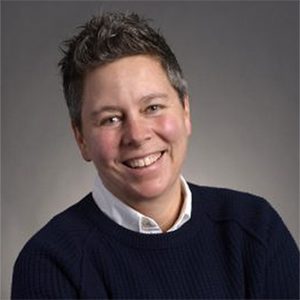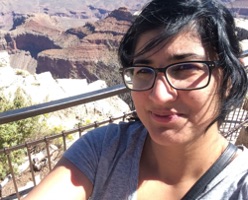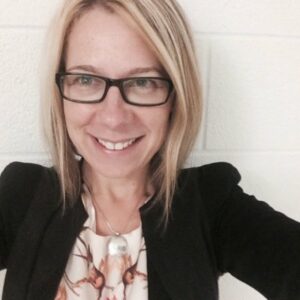
Four new Provostial Fellows have taken up their roles this year. The program is now in its second year running, with current fellowships in place until spring 2023.
As an initiative led by the provost, each of the Fellows will build capacity across the institution to advance the University Academic Plan and York University’s Sustainable Development Goal (SDG) Challenge. At the same time, the program offers tenured faculty an opportunity to gain hands-on experience working with University leadership. Here is a look at what the Fellows will be doing in Fall 2022 through to Spring 2023.
Ensuring LGBTQ2S+ students can access support to successfully launch careers
Jen Gilbert
Professor
Faculty of Education

Jen Gilbert’s project, “LGBTQ2S+ Students’ Experiences in their Professional and Clinical Placements,” will engage the York community in identifying new ways to better support early career nurses, social workers and teachers.
The project will support University Academic Plan priority “From Access to Success” and the UN Sustainable Development Goal 10, Reduced Inequalities.
This work will look at the experiences of LGBTQ2S+ professionals as they embark upon clinical placements and positions in their field. Often, as students leave the university and begin working in their professions, they can enter less LGBTQ2S+ positive spaces. These students frequently enter the field full of excitement only to encounter homophobia and transphobia from supervisors, co-workers, clients, patients or students.
Faculty, staff and students will meet to talk about what kinds of supports should be put in place to best prepare these students in their professional education. A pan-University advisory group will also be created, alongside focus groups and consultations across the York community.
During Pride Month in June, 2023, meetings will be held over the course of a day to formally identify ways to support 2SLGBTQ+ students through experiential education. Students, program administrators and representatives from professional accrediting associations will meet, share strategies, and hear from student representatives. The project will conclude with a report on best practices for supporting 2SLGBTQ+ students in experiential education.
Changing transportation patterns to reduce York’s carbon footprint
Burkard Eberlein
Professor of Public Policy and Sustainability
Schulich School of Business

Burkard Eberlein’s project, “Advancing Carbon Neutrality at York: Reimagining Mobility,” targets carbon emissions from commuting and travel related to studying, research and other University business activities.
The project will support University Academic Plan priority “Living Well Together” and the UN Sustainable Development Goal 13, Climate Action.
The first phase of this project identified best practices for reducing emissions from other universities around the world. Data from York’s carbon inventory was also weighed to understand the dynamics of York’s current carbon footprint. This data analysis will enable the project to match innovative ideas and best practices with York’s emissions profile so that proposals for action can target relevant areas and make an impact. The next phase of this project will involve a community-wide transportation survey, set to roll out this October. The goal of this survey is to gain a better understanding of community’s support for reducing mobility-related emissions. Overall, the project aims to find opportunities to reduce emissions within York’s current carbon footprint, so that the University can right the future on climate change.
Diversifying and decolonizing curriculum at York
Lalai Ameeriar
Associate Professor
Department of Anthropology
Faculty of Liberal Arts & Professional Studies

Lalaie Ameeriar’s project “Diversifying and Decolonizing Curriculum” sums up the progress made at York in this area and looks to identify opportunities to further maximize impact. As an anthropologist and ethnographer with more than 10 years of experience in research and teaching, Ameeriar brings unique expertise to this work.
In order to understand more about the experiences and viewpoints of various units and faculties who have implemented these efforts, a wider consultation will take place. Meeting with members of the Indigenous Council and the Advisory Council on Black Inclusion, the project will examine what efforts are making a difference at York University. A report will identify these experiences and create a benchmark for action.
Ameeriar will also review the literature, exploring what is meant by decolonizing the curriculum. Texts written on decolonizing and Indigenizing the curriculum in Canada, such as Sheila Cote-Meek’s Colonized Classrooms: Racism, Trauma and Resistance in Post-secondary Education (2014, Fernwood Publishing), will guide the review.
Supporting international student success after the pandemic
Saskia Van Viegen
Associate Professor
Department of Languages, Literatures & Linguistics
Faculty of Liberal Arts & Professional Studies

Saskia Van Viegen’s project “Engaging the Multilingual University” sets out to improve experiences and support for bilingual and multilingual international students at York.
The pandemic had a disproportional impact on international students. Restrictions to global travel interrupted access to campus life and many of the benefits of studying abroad.
This project examines levels of support that are currently available to students and will identify opportunities to enhance the student experience, with a particular focus on factors that drive academic success and persistence towards graduation. It will delve into how students navigate and access the University’s support networks.
Van Viegen will consult with students and stakeholders from across the primary faculties, departments and programs that admit international students. The project will also identify critical networks of support and effective changes to program delivery models within an equity, diversity and inclusion framework. Finally, the project will provide a concrete set of recommendations that align with University Academic Plan priorities on 21st Century Learning and Next Generation Student Supports, and contribute to advancing the UN Sustainable Development Goal 4, Quality Education.
